Chinese Food and Related Customs
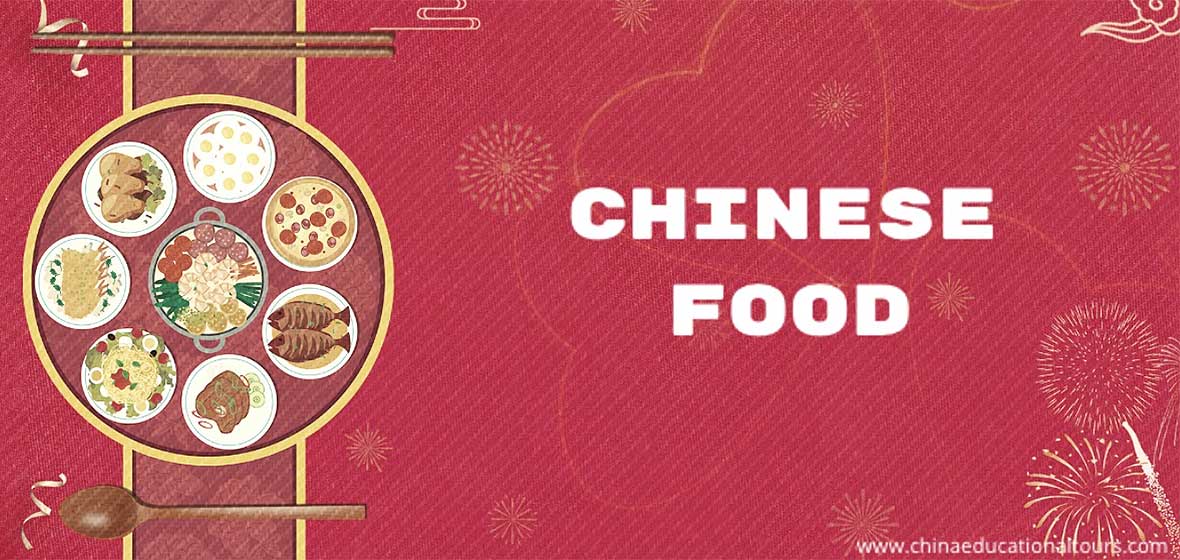
"Managing a big country is like cooking small fish."
-- Lao Tzu, Author of Tao Te Ching (Dao De Jing).
Here's your Chinese Food Guide
People in the West believe "You are what you eat." While Chinese people firmly believe "民以食为天" "To the people, food is heaven." Few other cultures are as food-oriented as the Chinese. The emphasis on food and cooking is understandable, considering that the foremost task of the emperor was to feed his subjects.
Believe it or not, a good cook can be appointed as prime minister in China. Legend has it that Emperor Tang, the founder of the Shang dynasty (ca. 1600–1046 BCE), appointed Yi Yin as his prime minister, who is a cook widely renowned for his great professional ability. Indeed, the art of proper seasoning and the mastery of cooking techniques are customary metaphors for good government.
Chinese people give food meaning far beyond its survival function. It has been used in rituals to guarantee fertility, prosperity, a good marriage, and an afterlife. It has been used to display the power and wealth of the state, family, and a person.
Chinese cuisine has developed over thousands of years its character unchanged by war and revolution. In a country as large as China, you will find there is a huge variety when it comes to real Chinese cuisine, and regional specialties vary, in some cases, from village to village. It is a very important aspect of your tour to go and explore and experience the real food of China in each place. We edited a series of articles to help you to understand and enjoy Chinese cuisine.
History of Chinese Food
5500 BCE
Meat was saved for special occasions, and served in small pieces. By 5500 BCE the Chinese were eating pork.
5000 BCE
Rice was grown in central and eastern China. The rice was boiled to be eaten, as well as being made into rice wine. In northern China, where rice doesn’t grow, people farmed millet, and gathered wild sorghum. The millet was boiled and made into a kind of porridge.
4000 BCE
Sheep and cattle were imported.
2000 BCE
The legendary Emperor Fuxi taught people to fish, hunt, grow crops and cook. Wheat was introduced to China. Taro and yams were already grown in China.
1200 BCE
One of the most notable things that westerners observe about Chinese dining (and cooking) is the use of chopsticks as a utensil. The earliest evidence of a pair of chopsticks (made out of bronze) dates back to about 1200 BCE.
1000 BCE
The soybean (Glycine max) was grown in China. The Chinese crushed soybeans and ate soybean oil for fat. Since meat was so expensive and Buddhists didn’t eat it, in around 1000 AD they used tofu and bean curd as a source of protein. Chinese have acquired the technology to produce alcohol spirit from rice.
550 BCE
Confucius had great respect for the art of cooking, and established culinary standards and proper table etiquette – many standards which are still held to today.
Han Dynasty
Legend has it that tofu was invented by Liu An (179–122 BCE ), the Prince of Huainan, grandson of the founder of the Western Han Dynasty, Liu Bang.
During the early part of the Han Dynasty (206 BCE – 220 CE), people ate noodles made from wheat dough or millet.
It is believed that dumplings were invented by Zhang Zhongjing who lived in the Eastern Han Dynasty.
Tang Dynasty
During the Tang Dynasty (618 – 906 CE) Chinese people explored all possible sources of food for diet diversity and good health, although cows and bulls were off-limits for religious reasons. The drinking of tea became popular for all social classes. The Chinese have been drinking tea for thousands of years, but during this time millet wine was more popular than tea.
Song Dynasty
Early-ripening rice was introduced into China from Champa. In the Northern Song Dynasty they started selling sweetened ice cubes, and iced plum juice.
Yuan Dynasty
From the Yuan Dynasty (1279 – 1368 CE) a new breakthrough brought about the appearance of ice cream. More foreign food products and methods were introduced.
Ming Dynasty
Chili pepper was introduced to China.
Qing Dynasty
Onion was introduced to China.
Modern China from 1949
In 1973, Mr. Yuan Longping and his team developed hybrid strains that typically yielded 20 percent more rice than conventional varieties, transforming Chinese agriculture after years of famine and scarcity.
In 1987 first KFC opened in Beijing and, in 1990, McDonald opened its first restaurant in Beijing.
Read more on Chinese Food and Drinks: A Brief History
Regional Cuisines in China & Cooking Methods
China is a country in East Asia, and it is the largest of all Asian countries. Various styles of Chinese cuisine, seasoning and cooking techniques were born of different areas and continue to play a significant role in Chinese food.
Today, Chinese ancient cooking techniques inspire chefs worldwide.
Dining Etiquette in China
Eating is a very serious business in China. Dining out together is by far the most popular way of socializing for Chinese people. Traditionally there was very strict etiquette, although it may be quite different from that which nowadays Chinese are familiar with. The importance of collectiveness in Chinese culture is best evidenced at mealtime. Meals are a shared experience and are an important element of personal and business life in China. It is therefore essential to know the basic rules when you are invited to participate in a meal, whether a celebration or simply to welcome you, either hosted in a home or, more commonly, in a restaurant. There are some simple rules to help you relax and enjoy the occasion. Simply put, the basic rules are:
Dress well as a sign of respect, and arrive on time.
Take food from the dishes in front of you. Don’t stand up to reach for a dish across the table.
Never stick your chopsticks vertically into your rice bowl.
Chinese Food and Season
To guide agricultural production, ancient Chinese people divided the year into 24 segments based on the sun's position in the zodiac. Each segment is called a solar term, which reflects the changes in the seasons, climate, and phenology. The influence of the ancient way of dividing time has gone beyond farming into the daily lives of the Chinese people, even in their mindset. Chinese arrange their menu according to the calendar. We believe fruits and vegetables are at their peak of freshness when they are in season.
Eating seasonally is what the solar terms tell us to do. According to traditional Chinese medicine, there are specific foods and flavors to turn to in each season to balance the changing weather.
Chinese Food and Health
Hippocrates said, "Let food be thy medicine and medicine be thy food." Hippocrates and the Ancient Greeks weren't the only ones onto something when they studied the many medicinal properties of foods.
Traditional Chinese Medicine, for example — has taught for thousands of years that food is medicine and a healthy diet is a powerful tool for protecting one’s health. In contrast with western medicine, the role of food and medicine in Traditional Chinese Medicine overlap.
For example, watermelon is a food, but it can also have a medical effect during hot days because of its hydrating properties. Like herbal medicine, food is also divided into four natures, called "siqi": cold, cool, warm. and hot. The nature of food is not determined by their actual temperature, but rather by what effects they have on a person's body after consumption. When a person continually eats one type of food, it creates an imbalance in their body and affects their immune system. Thus, one of the keys in Chinese medicine is to keep our body "neutral".
Popular Chinese Food
Chinese cooking traveled with Chinese immigrants to other parts of the world. As people from different cultures travel and adapt to new places, their food naturally changes. If you travel to China, you will not find any of the most popular dishes like General Tso's Chicken, Fortune Cookies or Sesame Chicken.

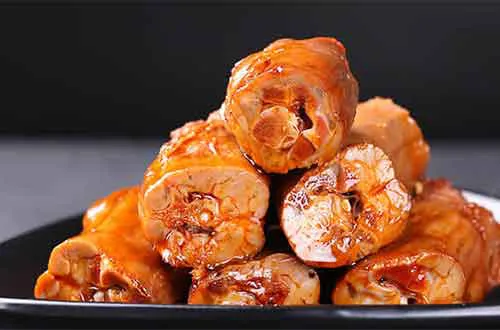
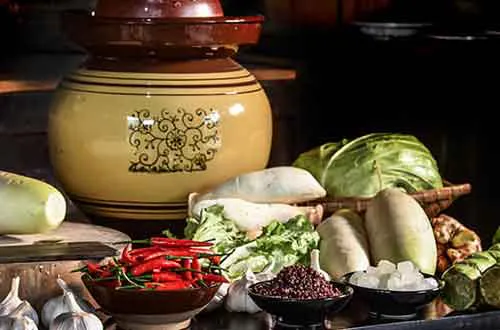
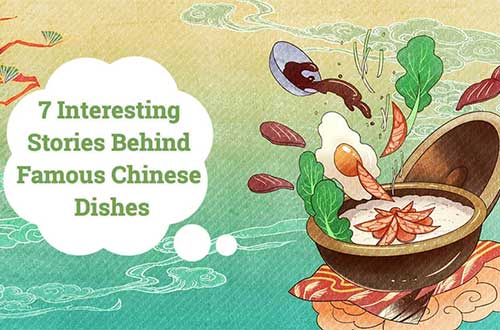
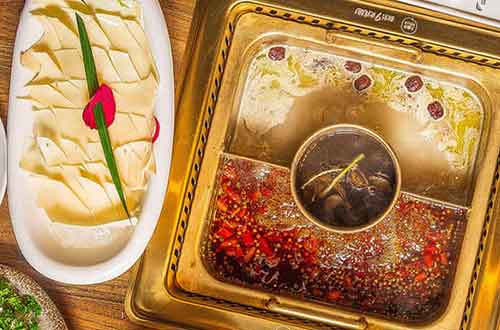
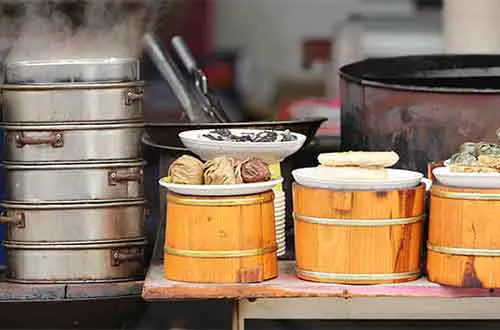
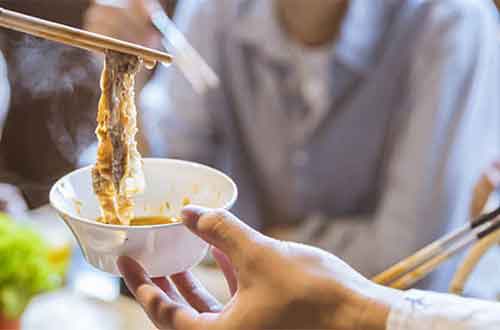

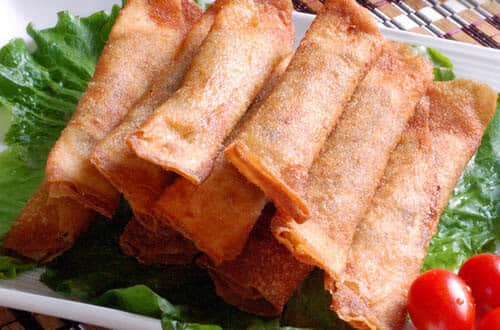
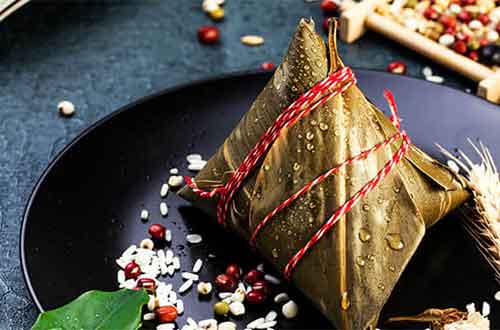

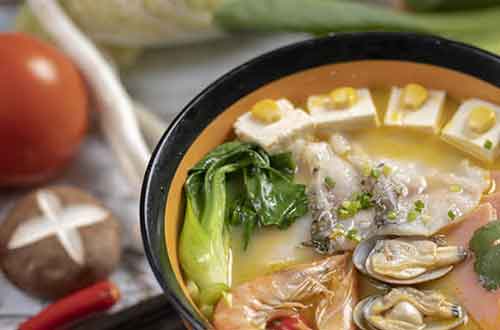
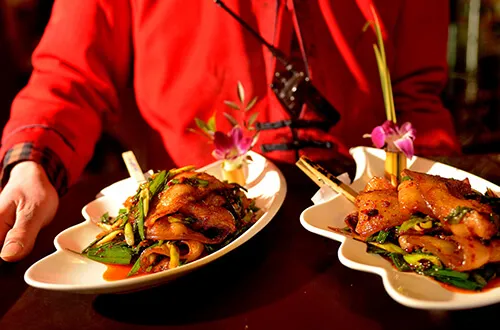
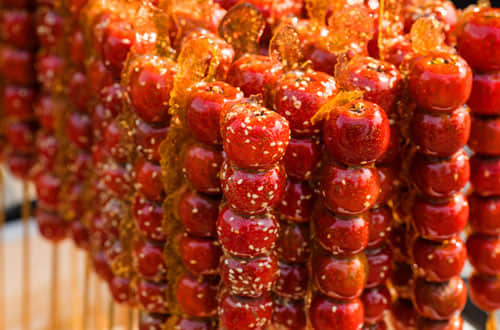
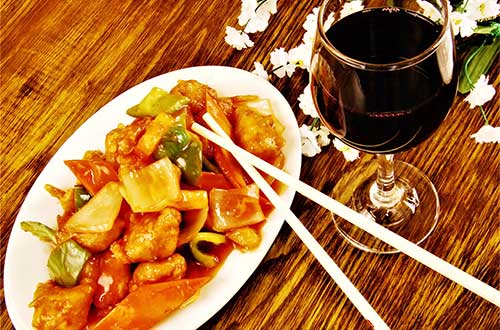
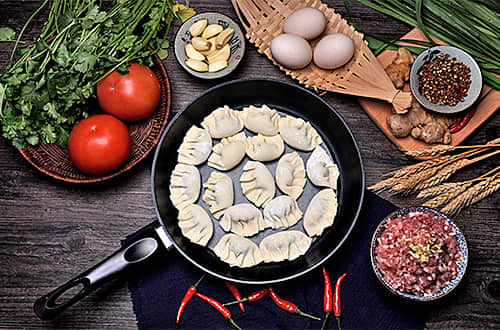 About Dumplings
About Dumplings 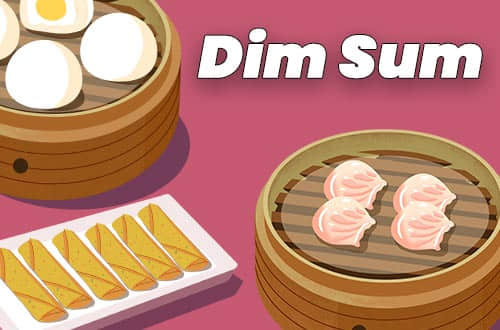 Dim Sum
Dim Sum  Chinese Beverages
Chinese Beverages  Eating & Drinking Food Cost
Eating & Drinking Food Cost